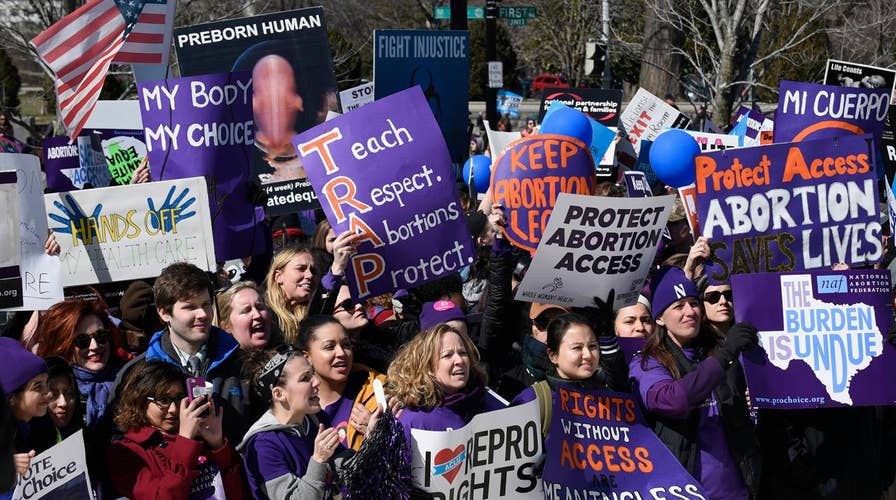Like millions of other American women, A Day Without Women will be a day like any other. I will rise, exercise, and shower. I will happily see to the needs of my family and then head to my office to write. Sometime in the afternoon, I’ll meet my kids at home, talk to them about their day, and eventually begin cooking dinner. My family will eat together, and then hang out and do homework or whatever else needs to be done since hockey has ended for the season.
I would no more participate in a protest than I would stick needles in my eye. Why? Because I’m not a joiner. As author William Powers notes, “When a crowd adopts a point of view en masse, all critical thinking stops.”
But don’t you understand the plight of American women, you ask? Actually, no. I don’t think women have a plight. I think individual women, and individual men, have their own respective plights. But do I think American women, as a whole, are oppressed? Of course not.
When it comes to women in America, progress is the operative word. According to the Free Online Dictionary, progress means “steady improvement, as of a society or civilization.” But it’s a relative term—how to improve something is entirely subjective. Yet when we talk about women in America, progress is never defined, debated or qualified. The topic is misleading right out of the gate.
That’s because women on the left have the power, and they have a specific message to sell. They want people to believe that women in America get the short end of the stick. Women have been oppressed for centuries, they say, and not enough progress has been made. Society still hasn’t leveled the playing field.
This philosophy is firmly embedded in our culture. Turn on the television, flip through a magazine, or search America’s airwaves, and you’ll be deluged with stories about women who wonder how their needs can best be met, how they can balance their lives better, or how they can deal with the myriad of problems and dangers they face. Women’s grievances dominate the conversation.
Americans who don’t share this negative view of women represent the silent majority. They know our country isn't perfect, but they know something else, too. They know American women are the most fortunate human beings on the planet.
If that sounds wrong to the naked ear it’s because Americans have been conditioned to believe otherwise. Just last year, in an ironic twist of fate, Hillary Clinton said, “I do think if you tell people something long enough, with great passion, they get perhaps inclined to believe it.”
Indeed they do, and that’s exactly what feminists like Clinton have done. They’ve defined progress for us by calling it liberation—from men, from children, from society’s constructs, from just about anything that makes women feel morally obligated to someone or something other than themselves.
But most women don’t agree with that definition of progress. Feminists do. They’ve spent decades trying to convince women that America needs to rearrange itself so women can be unshackled, free and presumably happy.
But it didn't work. According to a 2007 report from the National Bureau of Economic Research, “As women have gained more freedom, more education, and more power, they have become less happy.”
The authors of this report, Betsey Stevenson and Justin Wolfers, suggest that “the salience of the women’s movement fueled elation in the 1970s that has dissipated in the ensuing years.”
That’s because most women don’t want what feminists want. So rather than participate in A Day Without Women, this silent majority will continue forth with their lives and watch the spectacle from the sidelines.
And marvel at the irony of women who want to be heard while wearing a ‘pussy hat.’









































